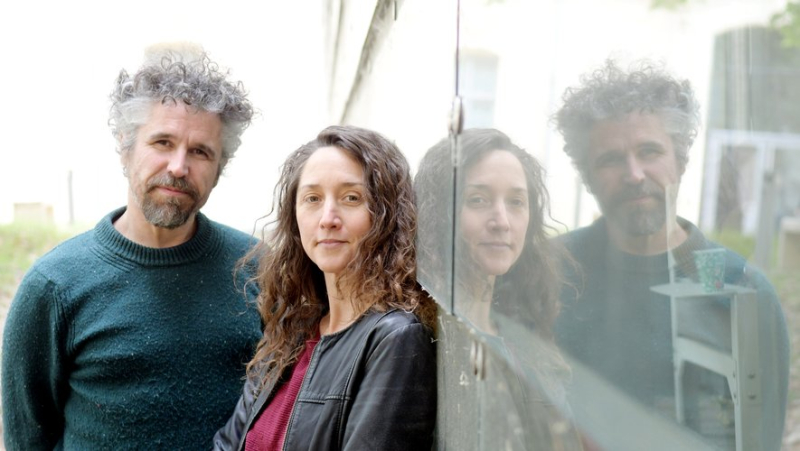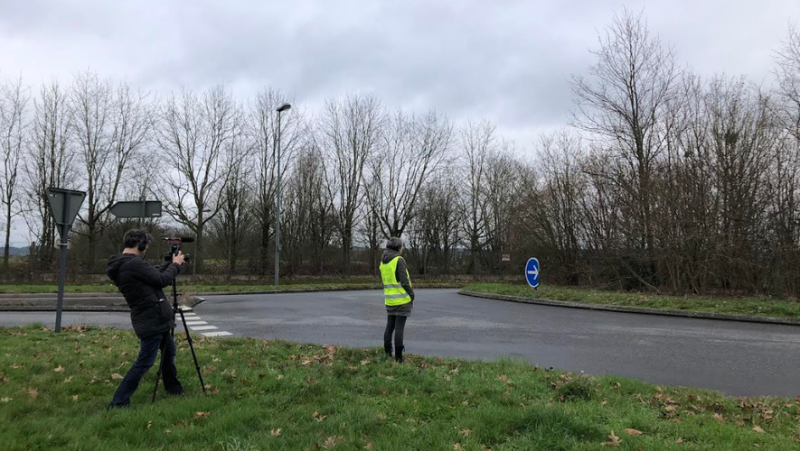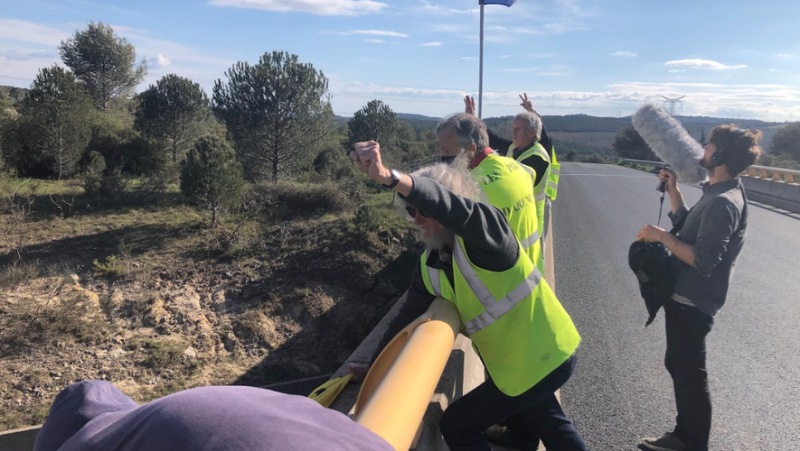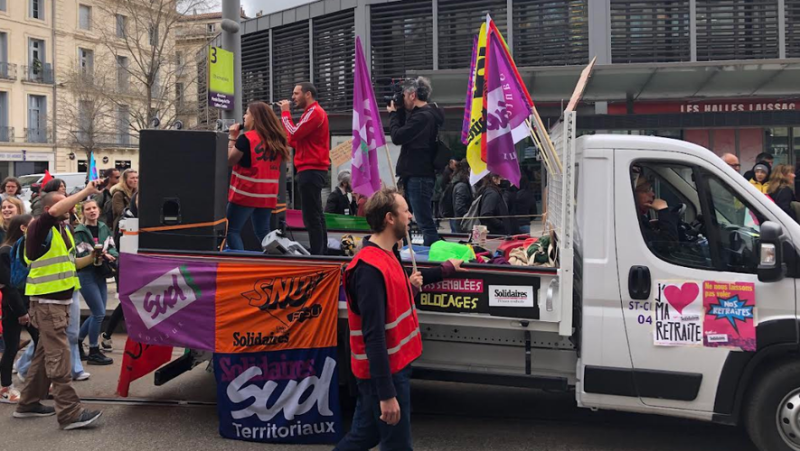“Tastes of struggle”: a documentary film to tell what “happened after the Yellow Vests”

Pierre-Olivier Jaumin et Emmanuelle Reungoat, co auteurs Des Goûts de lutte. MIDI LIBRE – Mickael ESDOURRUBAILH

Les ronds-points, lieu de tournage privilégié du mouvement. D. R.

Un mouvement de contestation sur le terrain. D. R.

The convergence of struggles during demonstrations against pension reform. D.R.
Emmanuelle Reungoat, lecturer in political science at the University of Montpellier and director Pierre-Olivier Gaumin offer a film which follows five characters in struggle for the first time "broke into politics& ;quot;.
Why did you make a film about the Yellow Vests ?
Emmanuelle Reungoat : From the start of the movement in 2018, I went with my students to the roundabouts to launch a local and national investigation. It was through this prism that I discovered movement. I wanted to bring knowledge out of the lecture halls and produce results on other media. When I meet Pierre-Olivier, director at the Maison des sciences de l’Homme, in 2021, we talk about this project. We started to put together the first writing of the project. And we wrote and started filming in the fall of 2021.
Pierre-Olivier Gaumin : It was November 17, 2021 for the 3rd anniversary of the movement. We filmed over a long period of time following 5 characters in Gard, Hérault and Brittany. We wanted to try to detect the nuances based on Emmanuelle's sociological interviews, to also tell a slightly different story.
3 years of filming for 58 minutes of film, it’s not a little frustrating?
P.-O G.: We had more than 120 hours of rush. We had 7 or 8 interviews per character, we could have made a film on each of them but we had to make choices to tell a message: what happens after the movement… ;nbsp;?
E. R : The media covered what was most visible. We wanted to know how much this changed people. They all have one thing in common: they are all first-time protesters. We wanted to know how we keep a taste for struggle, how it changes our relationship with the world.
This struggle turned their lives upside down…
E. R. : This is exactly what we wanted to show . When we invest very heavily in major historical social struggles, it disrupts lives in many dimensions: friendships, the relationship with family, the way we look at ourselves, the relationship with work, with reading society…
P. O. : The film gives them a voice, makes them beautiful, credible. We listen to their words at the same level as the researchers who are interviewed.
E. R. : We wanted to fight against the process of illegitimization of the Yellow Vests. We are making a counter-discourse, we are showing another reality. We show that these popular circles could become political subjects. It’is a revolution in worldview… When politicization does not take place at school or in parties, it can take place in social struggles where there is discussion, this is what happened in these roundabouts.
Have the Yellow Vests become a movement of reference ?
E. R. : I think so. We are currently writing a book deconstructing the received ideas of the Yellow Vests and behind the film, there is a desire to reinscribe the movement in the history of social struggles. For the five year olds, in November, we heard the hope or fear that they would return. We also hear about "vest yellowing" struggles.
P.-O. : It’is a movement without hierarchical organization with direct action , so the scale was unprecedented and it became a benchmark movement. More than 3 million people have participated at least once.
Can the movement start again?
P. O. : In the film, which is called Tastes of Struggle, indeed, there are different tastes that coexist, it's sweet, salty, sour…hellip ; Sometimes we want to leave, then sometimes they are exhausted from their struggle on the roundabouts, there are stories of friendship, but also fractures in life's journeys that are sometimes radical… hellip; Others are ready… In any case, they have increased their skills in terms of network, speaking out, interest, politicization…
E. R. : The movement is very heterogeneous, but friendship groups exist again, they have parties together, live together, they are in collectives, associations, mutual aid networks, shared gardens, marauding, food distribution… hellip; But I don’t believe in the return of the movement to the same form. There is also disillusionment. This has not translated into a partisan form, given the distrust of politics and the fear of recovery. On the other hand, political awareness has clearly strengthened.
An extraordinary social struggle
Five years of struggle, five years à wear the yellow vest. We don’t come out completely unscathed. We come out transformed for these five characters whose lives have been turned upside down as he went out into the street to shout their revolt for the first time in their lives. How were they created? transformed, what awareness about society do they now carry? This is the issue "Of the tastes of struggle"which explores for three years the life affected by the Yellow Vest movement which celebrated turns five in November 2023. Anonymous people who found themselves on roundabouts where they found a new family, the hope of a better world, the shaping of their political and activist consciousness, their refusal of an established hierarchy, but also severe repression and sometimes disillusionment.
From Montpellier à Saint-Brieuc via Gard and Lunel, the camera follows these disrupted slices of life, transformed by this extraordinary experience that they hope for ;rent continue &agrav; to support. A frank and moving look at a social struggle that has become a reference.
Des Goûts de struggle (Les Films d’Ici Méditerranée) by Emmanuelle Reungoat and Pierre-Olivier Gaumin will be previewed at the Cinéma Diagonal in Montpellier on Tuesday April 30 at 6:30 p.m., in the presence of the authors. You can reserve your place by clicking here.
I subscribe to read more




